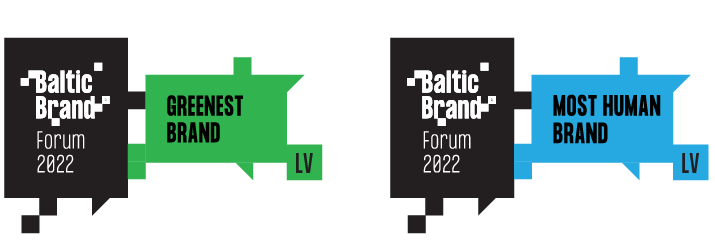
New Study Material about Wood Biorefining has been Created for Secondary School Students
Attēls: ©Dmitrijs Suļžics/F64 Photo Agency
Sadarbojoties AS “Latvijas valsts meži” (LVM), LU Starpnozaru izglītības inovāciju centra (LU SIIC) un Koksnes ķīmijas institūta speciālistiem projekta “Skola 2030” ietvaros ir radīti jauni mācību un metodiskie materiāli par koksnes biorafinēšanu, kas praksē izmēģināti Rīgas Teikas vidusskolā.
JSC “Latvia’s State Forests” (LVM) in cooperation with the Interdisciplinary Centre for Educational Innovation at the University of Latvia (LU IEIC) and experts from the Latvian State Institute of Wood Chemistry within the framework of the project “School 2030” (Skola 2030) have created new teaching and methodological materials about wood biorefining, which have been tested in practice at Riga Teika Secondary School.
The wood biorefining study process combines chemistry, physics, technology and economy, and it has been designed as an interdisciplinary theme within the framework of the new study content to implement competence-based approach in education.
“Within this topic, teachers are given an opportunity to show their students, where and how knowledge about forest can be applied in real life, how theories, learnt in physics and chemistry classes work, allowing students to create materials derived from natural resources that can be both innovative and practically useful,” says Līga Abizāre, Creator of the LVM School Programmes.
It is planned to include this study material in the programme for all grade 11 students. “We tried this at Riga Teika Secondary School, but it is planned to introduce this topic to other schools in Latvia in the academic year 2020/2021,” says Kārlis Greitāns, LU IEIC expert in competence-based study content development. He adds that the degree of readiness in many schools to implement competence-based study content and solve different tasks applying complex methods differs. There are educational institutions that have been trying to work this way for several years already and are always open to new ideas and innovative approaches. In other schools, it is necessary to additionally educate teachers on how to work with new methods. “Speaking specifically about this study method, there will be professional development courses for teachers offered in cooperation with LVM. This way teachers will be provided with all the necessary information on how to work with the new content,” promises Kārlis Greitāns.
The new topic was approbated at Riga Teika Secondary School. Here students used the laboratory to obtain cellulose from various wood chips, which can be further used for the development of insulation material and other products. It is important to note that for this purpose, wood residues from other classes and lectures were used.
Shavings, which students usually threw away in waste after manufacturing of other wood products, have been saved this time, to further use them in chemistry classes. Students not only created cellulose from shavings, but also learnt how to cast paper. In turn, thermal isolation material became a prototype material for building insulation,” tells Pēteris Kaļva, Teacher of Design and Technologies at Teika Secondary School.
“Interdisciplinary methods are very exciting for students and undoubtedly valuable, but they require an additional insight and deep knowledge, as well as mutual cooperation, planning the time for acquiring the subject. However, such activity can also be very satisfying for teachers. Children and young people are fascinated by practical work, it provides them with a better understanding and they remember the new study subject longer,” tells Pēteris Kaļva.
The pilot project showed that working in an innovative and interdisciplinary way is not an expensive or complicated task at all. For example, the standard school chemistry laboratory equipment is sufficient for a biorefining class. Teika Secondary School only needed to purchase a powerful blender for cellulose manufacturing purposes. “We will evaluate, how to further optimize this method. But the raw material – shavings – is available to everyone. Each school has its different equipment range and resources that are available in its laboratory; nevertheless, the School 2030 project offers reforms enabling schools to work in a more practical manner,” tells Kārlis Greitāns.
LVM has been educating young people for more than ten years and together with educational experts in schools all over Latvia implements study programmes for children of all ages. “Thanks to lour long-term cooperation with JSC “Latvia’s State Forests” our students get a practical insight into forest as a versatile site for research and learn about its sustainability. An understanding of forest development from a tree seed to a final product is formed. Unity of knowledge and practical activity, in my opinion, is the primary basis to promote student interest about environmental processes and to give them an impulse for further choice of profession,” tells Ilona Bergmane, Principal of Riga Teika Secondary School.
Each year, more than 20 000 students participate in LVM school programmes. For additional information please visit www.lvm.lv/skolam


